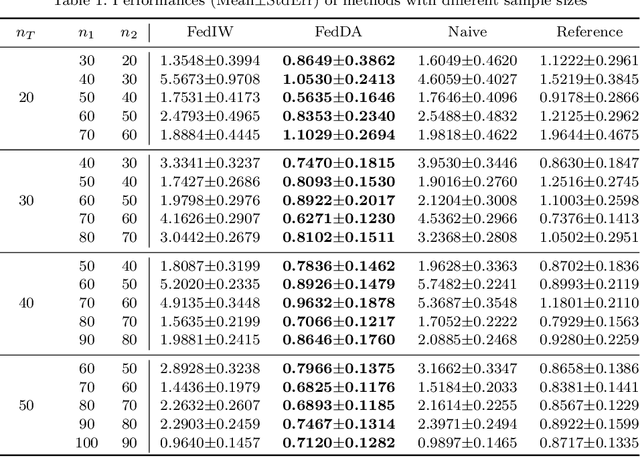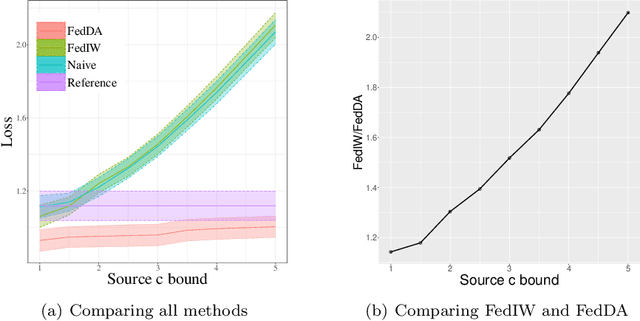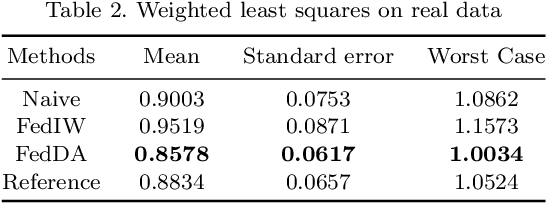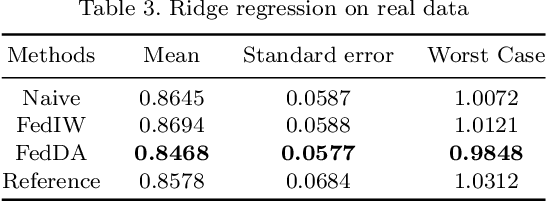Yaqian Xu
Federated Covariate Shift Adaptation for Missing Target Output Values
Feb 28, 2023



Abstract:The most recent multi-source covariate shift algorithm is an efficient hyperparameter optimization algorithm for missing target output. In this paper, we extend this algorithm to the framework of federated learning. For data islands in federated learning and covariate shift adaptation, we propose the federated domain adaptation estimate of the target risk which is asymptotically unbiased with a desirable asymptotic variance property. We construct a weighted model for the target task and propose the federated covariate shift adaptation algorithm which works preferably in our setting. The efficacy of our method is justified both theoretically and empirically.
A Closed-loop Sleep Modulation System with FPGA-Accelerated Deep Learning
Nov 19, 2022



Abstract:Closed-loop sleep modulation is an emerging research paradigm to treat sleep disorders and enhance sleep benefits. However, two major barriers hinder the widespread application of this research paradigm. First, subjects often need to be wire-connected to rack-mount instrumentation for data acquisition, which negatively affects sleep quality. Second, conventional real-time sleep stage classification algorithms give limited performance. In this work, we conquer these two limitations by developing a sleep modulation system that supports closed-loop operations on the device. Sleep stage classification is performed using a lightweight deep learning (DL) model accelerated by a low-power field-programmable gate array (FPGA) device. The DL model uses a single channel electroencephalogram (EEG) as input. Two convolutional neural networks (CNNs) are used to capture general and detailed features, and a bidirectional long-short-term memory (LSTM) network is used to capture time-variant sequence features. An 8-bit quantization is used to reduce the computational cost without compromising performance. The DL model has been validated using a public sleep database containing 81 subjects, achieving a state-of-the-art classification accuracy of 85.8% and a F1-score of 79%. The developed model has also shown the potential to be generalized to different channels and input data lengths. Closed-loop in-phase auditory stimulation has been demonstrated on the test bench.
 Add to Chrome
Add to Chrome Add to Firefox
Add to Firefox Add to Edge
Add to Edge